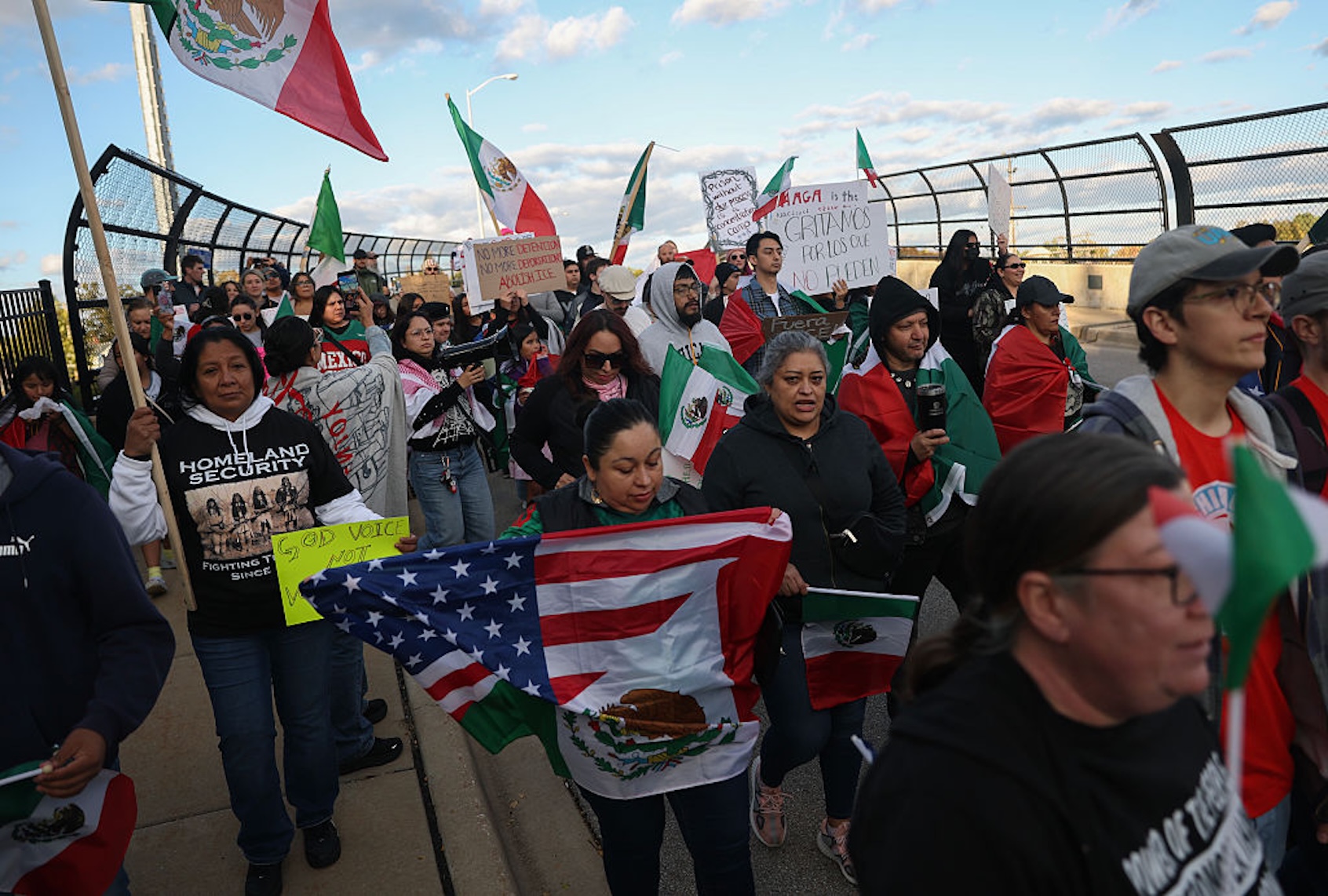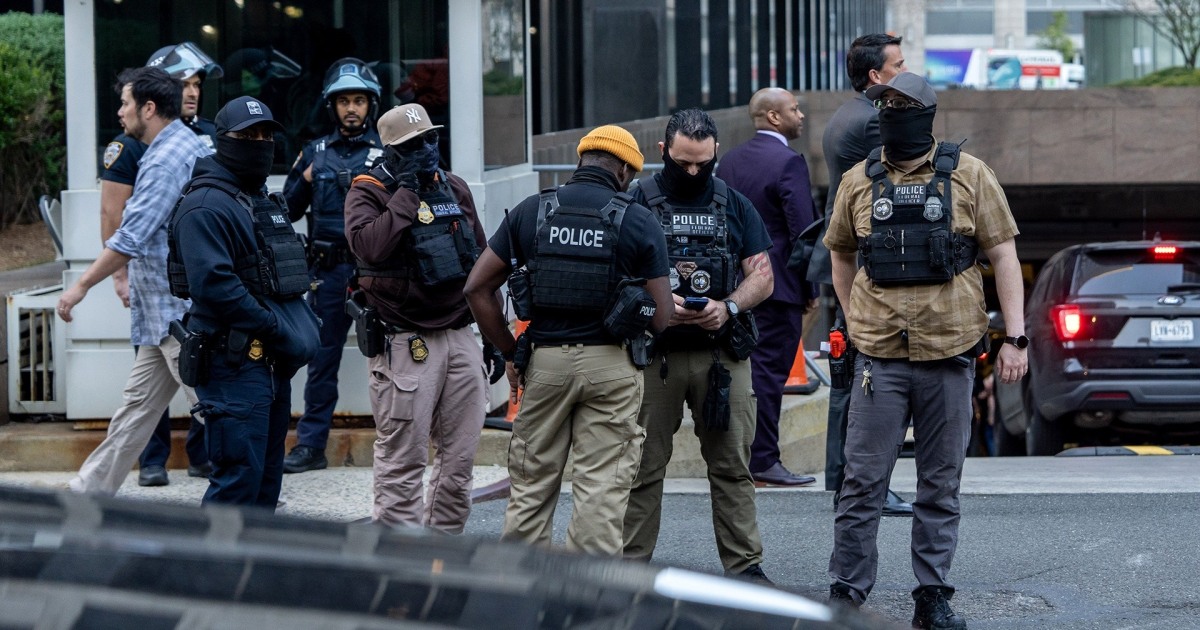America is finally starting to wake up to Donald Trump and the actions of his administration, a shift that former U.S. Labor Secretary Robert Reich believes could help restore faith in democracy.
That’s the optimistic belief shared Reich and Oakland comedian W. Kamau Bell, who engaged in a spirited discussion before some 2,000 people at UC Berkeley’s Zellerbach Hall after a screening of “The Last Class,” a documentary about Reich’s career.
“Something dramatic has happened,” Reich said onstage Wednesday, Oct. 8. “Something has come out into the open that a lot of people who are on the edge, a lot of independents, a lot of people who really don’t know their politics, who are a little bit afraid — they are now seeing the news. And they’re saying, ‘What, the Texas National Guard is coming into Chicago over the objections of the mayor and the governor of Illinois, and they are coming in there and they are doing what? And the president is saying what? ’”
Bell added, “They’re raiding apartment buildings, filled with people in the middle of the night, pulling them out of their beds and zip-tying children.”
Reich said that the optics of such policies are so awful that it “activates.”
“It enables people to see something that is not just political,” he continued. “It’s not right versus left, it is not Democrats versus Republicans, it’s fundamental: democracy versus facism.”
“The Last Class,” directed by Elliot Kirschner and produced by Heather Kinlaw Lofthouse and Josh Melrod, follows Reich, now 79, during his last semester as a professor at UC Berkeley after more than four decades of teaching.
Filmed in 2023, the indie documentary has become a surprise hit even without an official release. It has been shown in several Bay Area theaters over the past few months, mostly in one-off screenings, pulling in about $600,000 nationally. Highlights of its run include eight weeks at the Quad Cinema in New York and four weeks at Landmark’s Nuart Theatre in Los Angeles.
The film has touched a nerve, not only because of Reich’s celebrity, but also because the course he taught, Wealth and Poverty, examines income inequality and its impact on American democracy.
“I believe that what’s happening in Washington now, and even Donald Trump, is not the cause of what’s ailing this country,” Reich observed. “It’s the culmination, the consequence, the ultimate result of 40 years or 50 years of us letting things happen. Not keeping our eye on the ball, getting off track, letting money dominate politics.
“I mean, we’ve got to get big money out of politics, don’t we? Republicans and Democrats have been drinking at the same trough, and it’s time for them to stop.”
Another tipping point, Bell observed, was the suspension of ABC late-night talk show host and comedian Jimmy Kimmel in the wake of comments he made after the killing of conservative activist Charlie Kirk, a subject on which Bell himself had strong opinions.
“How ironic is it that a rich white millionaire like Kimmel would be the canary in the coal mine?” Bell said.
Bell said he first heard about Kimmel’s suspension — which lasted less than week after an outcry by free speech advocates — while at the Atlantic Magazine Festival in New York last month. Laurene Powell Jobs, the widow of Apple co-founder Steve Jobs and lead investor and chair of the Atlantic, was at the event, along with many of the well-connected.
“I’ve never seen so many nervous rich white people in my life,” Bell said with a laugh. “It was this feeling of like, ‘Wait a minute, if they’re going after Kimmel, even we need to be afraid.’”
Bell added that stand-up comedy couldn’t exist without the First Amendment.
“I’m not in the Saudi Arabian comedy business,” he joked, referring to the controversy of American comedians performing at the recent Riyadh Comedy Festival, a Saudi government–backed event widely condemned by human rights groups as an effort to whitewash the kingdom’s record on free speech and LGBTQ rights.
“Stand-up comedy, as we define it globally, started in America,” Bell went on. “It was modernized by Lenny Bruce, Mort Sahl, Joan Rivers, Phyllis Diller and later George Carlin. People were like, ‘I have opinions. I’m going to say things that I shouldn’t say.’ So stand-up comedians more than anybody need to stand up for the First Amendment or else we cease to exist.
“So as much as I think it’s funny — ‘Yay, we saved the rich white guy’ — now let’s do (it for) the rest of us.”
Bell’s comments about free expression led to a broader discussion about civic responsibility — one echoed by Reich.
Reich said the antidote to facism is activism, and said the next “No Kings Day” protest against Trump’s policies set for on Oct. 18 is important.
“Be active for what you believe in,” he told the crowd, noting that his 17-year-old granddaughter was campaigning for Democratic New York City mayor nominee Zohran Mamdani. “Be active in terms of not just demonstrating, but also boycotting, protecting people in the community who are most vulnerable. Be active in terms of expressing yourself and your values.
“One thing that I’ve learned about bullies and tyrants is you can never appease them, ever, because they will always want more.”







